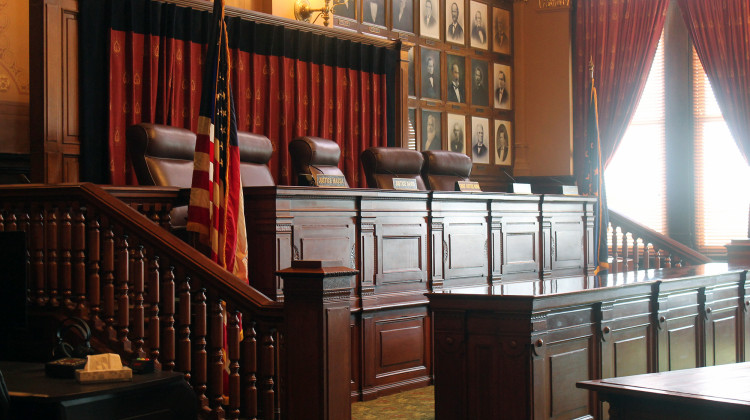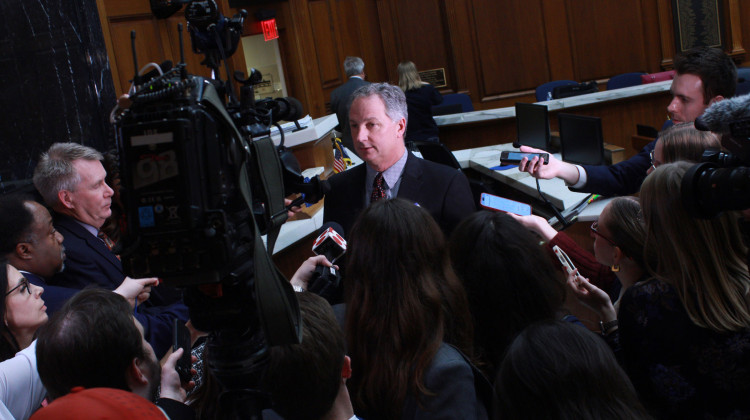
Indiana Supreme Court Chief Justice Loretta Rush likened the Timbs Land Rover the case to Captain Ahab’s pursuit of the white whale in "Moby Dick."
Lauren Chapman/IPB NewsIndiana resident Tyson Timbs may finally get to keep his Land Rover that police seized nearly eight years ago in a drug case.
The Indiana Supreme Court sided with Timbs this week in a ruling that could end a nearly decade-long legal battle.
In 2013, police took Timbs’s $35,000 Land Rover after he used it to transport a few hundred dollars’ worth of heroin. While Timbs pleaded guilty to dealing drugs, he challenged the police seizure of his vehicle, arguing it was an unconstitutionally excessive fine.
That case went all the way to the U.S. Supreme Court, which in 2019 created new tests for what constitutes excessive fines.
The state of Indiana kept fighting, trying to get the courts to let police keep the Land Rover.
And the Indiana Supreme Court – likening the case to Captain Ahab’s pursuit of the white whale in “Moby Dick” – ruled in Timbs’s favor. Chief Justice Loretta Rush, writing the majority opinion, said the police seizure of the vehicle was “highly punitive and thus overly harsh.“
“To be sure, the Land Rover’s forfeiture is not unconstitutional just because Timbs was poor. Or because he suffered from addiction. Or because he dealt drugs to an undercover officer and not someone who would use them. And it’s not simply because the vehicle’s value was three-and-a-half times the maximum fine for the underlying offense. Or because he received the minimum possible sentence for his crime and wasn’t a sophisticated, experienced dealer. Or because the car, his only asset, was essential to him reintegrating into society to maintain employment and seek treatment," Rush wrote. "Rather, it’s the confluence of all these facts.“
The state could still appeal the decision to the U.S. Supreme Court.
And Indiana Supreme Court Justice Mark Massa, who disagreed with his colleagues’ ruling in the case, hopes the nation’s high court weighs in. Massa, in a dissenting opinion, indicated he’d like an answer as to whether courts, when deciding if a seizure was constitutional, should rely more on whether the seizure was proportional to the crime or if the property being taken was instrumental to committing the crime.
Contact reporter Brandon at bsmith@ipbs.org or follow him on Twitter at @brandonjsmith5.
 DONATE
DONATE








 Support WFYI. We can't do it without you.
Support WFYI. We can't do it without you.